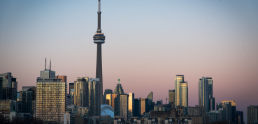Types of Student Visas in the USA
When it comes to studying abroad in the US, the country has constructed three categories of non-immigrant student visas. The US, the leading nation worldwide for the ample number of higher education institutions, has divided the visa categories depending on the education categories of the students.
Here is an outline of the three categories of US student visas:
F Visa
F visa applies to international students who want to pursue a full-time degree course at accredited US colleges or universities. Also, students who wish to study English at an English school in the US are eligible for an F visa.
Further, the F visa is divided into 3 categories: F1, F2, and F3. Among these three categories, the F1 visa is the US student visa for those who enter the United States as full-time students. The course they have applied to must be from a recognized and accredited US institution.
J Visa
J Visa is an Exchange visa for those international students who take the US programs that nurture cultural exchange. It is a non-immigrant visa and makes those students eligible for it who satisfy the program’s qualifying conditions. It needs to be financed by a business or government organization.
J visa is also divided into two categories: J1 and J2 visas. The J1 visa is the student exchange visa of the two J visas.
M Visa
The M visa is for those international students who want to pursue non-academic or vocational training in a US institution. It has three categories of M visas: M1, M2, and M3 visas. The M1 visa is the non-immigrant student visa among the three types of M visas. It remains valid for one year, except for some cases with medical reasons.
Reasons for F1 Student Visa Denial
Country of origin
A student’s nationality plays an important role in visa approval and rejection.
An applicant from economically and politically developed countries like Germany and Australia doesn’t face any problems. In contrast, applicants from third-world countries like Congo, Uzbekistan, and Afghanistan face barriers in getting their visas approved by the US Department of State.
Suspicious, missing, or incorrect documents
Documents work as evidence that helps in gaining information about an applicant.
Unless the visa or immigration officials obtain all the necessary documents, the visa application will not be approved.
Therefore, it is important that the visa officers do not suspect the credibility of the academic degrees. Forged and duplicate documents straightaway lead to the rejection of a visa.
Financial instability
Financial instability is a big problem. The US Consulate officers would surely not expect a student to have liquid assets to cover the entire program’s expenses. However, they must have enough funds to cover the expenses of the first academic year.
The F1 visa will be rejected if there is no evidence of sufficient funds as listed on the I-20 or DS-2019 form. It is important to present evidence to show the availability of liquid assets. The student should be able to prove their capacity to pay for the first year of an academic program. If not, the application gets rejected.
An unsatisfactory interview
A student visa interview lasts only 2-3 minutes, but it is one of the most important parts of the application process. Thus, the applicants must make a good impression within that time limit.
The questions asked are very general and lead to refusal if the applicants cannot articulate the reasons behind choosing the USA and the particular university or college to study.
The applicants must be honest, coherent, and consistent throughout the interview. If not being able to perform well in the visa interview leads to rejection, then candidates should perform a self-evaluation and list the techniques by which the interview skills can be improved.
Late visa application
The F1 student visa can be denied if the applicant applies after the program start date as shown on the I-20 or DS-2019 form. It is always better to plan and apply for a visa in advance.
Insufficient evidence of intent to return
Student visas are only granted in the United States if applicants provide sufficient proof of their intention to return to their home country after completion of the course. If the Consulate officers doubt the intent to return home upon completing the education, the visa application is straightaway rejected.
Can You Appeal a Visa Rejection
Unfortunately, there is no formal appeal process for an F1 visa rejection. The decision made by the consular officer is final, and you cannot appeal the decision through the embassy or consulate where you applied. Candidates can however reapply.
How to Appeal US Visa Denial
Since there is no formal appeal process, the only option is to reapply for the F1 student visa by submitting a new application, paying the visa fees again, and attending a fresh interview.
It's essential to address the reasons for the previous denial and provide additional supporting documents or clarifications to strengthen your case.
Role of US Embassy in US Visa Rejection
The US embassy or consulate plays a crucial role in the visa application process. The consular officers at these diplomatic missions are responsible for reviewing visa applications, conducting interviews, and making decisions to approve or deny visa requests.
They have the authority to request additional documentation or clarification from applicants if needed. However, their decisions are final, and they are not obligated to provide detailed explanations for f1 visa rejection reasons.
How Many Times Can Students Apply for US Visa
There is no limit to the number of times a student can apply for an F1 visa after a rejection. Students can reapply as many times as needed until they receive approval.
Resources for USA Visa








